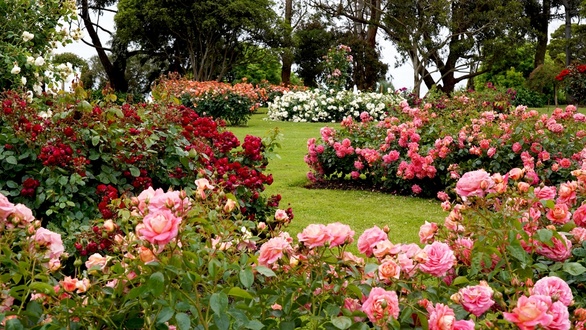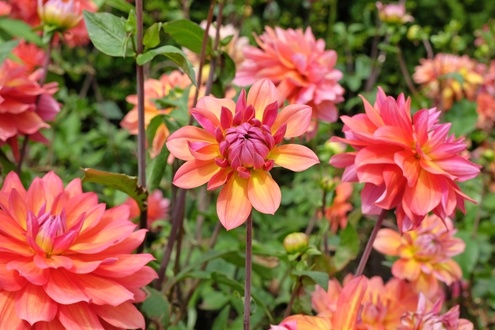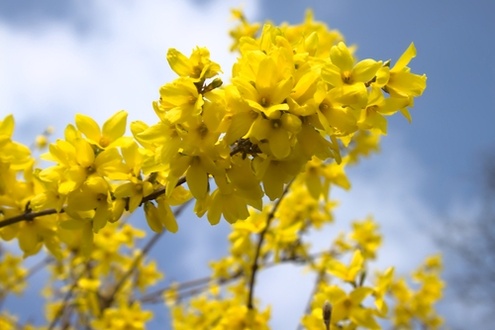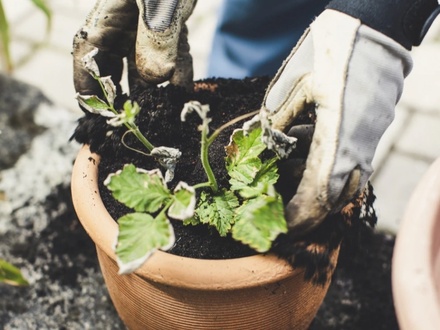
Water is one of our most valuable resources, and with summers getting hotter and dryer, it’s more important than ever to use water effectively in the garden. We’ve put together our top ten tips for water-wise gardening.
Tips for water-wise gardening
-
Improve your soil by adding organic material. Adding organic material helps the soil retain moisture and drain better, so it’s probably the most water-wise thing you can do in your garden. Compost, leaf mould and well-rotted farmyard manure are all excellent sources of organic material. Dig it in when planting, or put a thick layer on the soil in autumn and let the worms work it in over winter.
-
Mulch your soil in spring while it’s still damp from winter. You can mulch with organic material, such as compost or bark chippings, or use decorative mulches like pebbles or gravel. A thick (5cm/2in) layer of mulch reduces water evaporation from the soil in hot weather, and it helps to keep weeds down too!
-
Install a rainwater butt connected to a downpipe to collect the run-off from your roof, and use this to water your garden whenever possible.
-
Drip irrigation systems are better than sprinklers, getting water directly to plants’ roots. A DIY alternative for small vegetable beds is to create a reservoir for each plant. Cut the bases off plastic bottles, remove the caps and bury the bottles upside down in the soil, one next to each plant. When watering, simply fill the bottles, and water will soak out into the soil at the plants’ roots.
-
Choose plants that can cope with your environment. Plants from countries where hot, dry weather is the norm have adapted to cope, developing small, silvery, waxy or woolly leaves or storing water in leaves and stems. Salvia, lavender and thyme, woolly-leaved Stachys byzantina (lamb’s ear) and succulent sedums are just a few of the plants that cope well in dry conditions.
-
Avoid watering lawns. Although they will go brown when it’s dry, they revive quickly when the rain returns. To reduce stress on the grass, raise the blades on your mower for a more extended cut.
-
When watering, don’t water little and often. A good soaking every few days encourages plant roots to grow deep in search of water, giving them more chance of surviving in dry periods.
-
Water in the evenings or early mornings to reduce water loss through evaporation.
-
Add water-retaining gel to potting compost in containers, and use bigger pots, which dry out more slowly than small ones.
-
Don’t waste your precious water on weeds! Get rid of them so that your plants can make full use of your watering.
Water is precious, so make the most of it. For advice on water-wise gardening and plants, visit our centre – we’re always happy to help.




